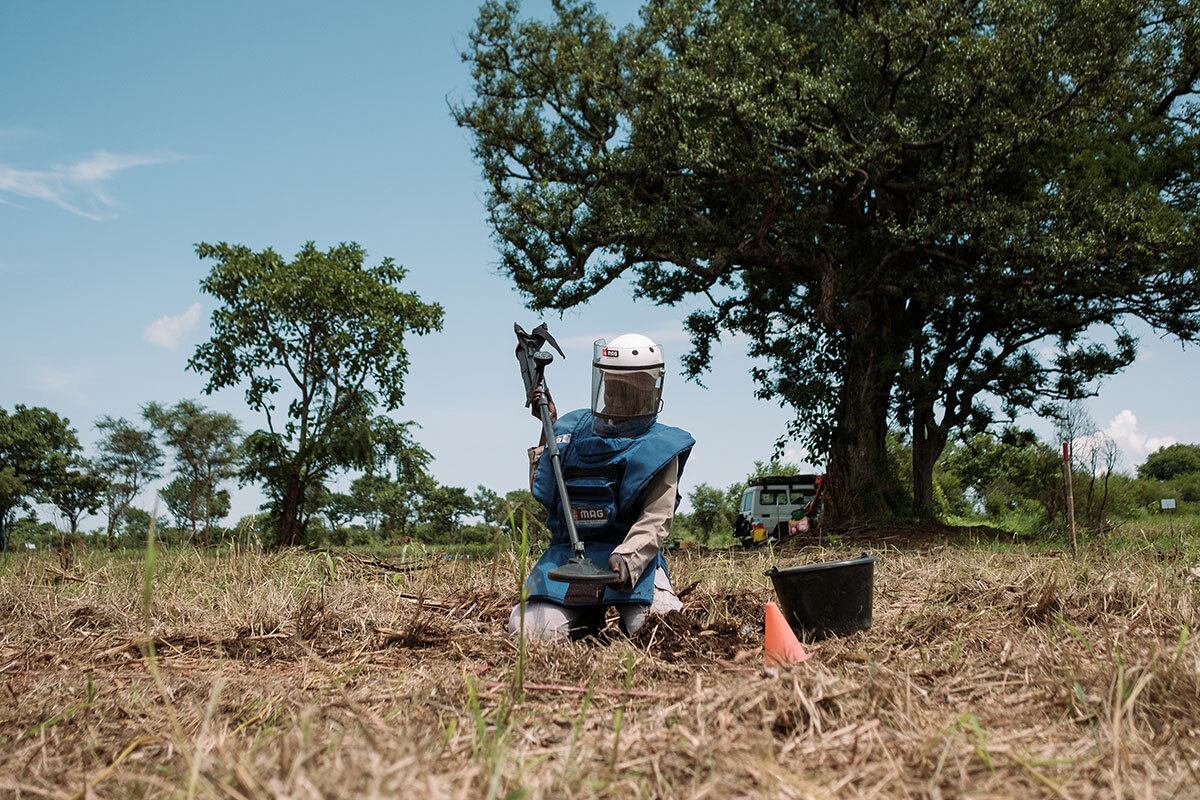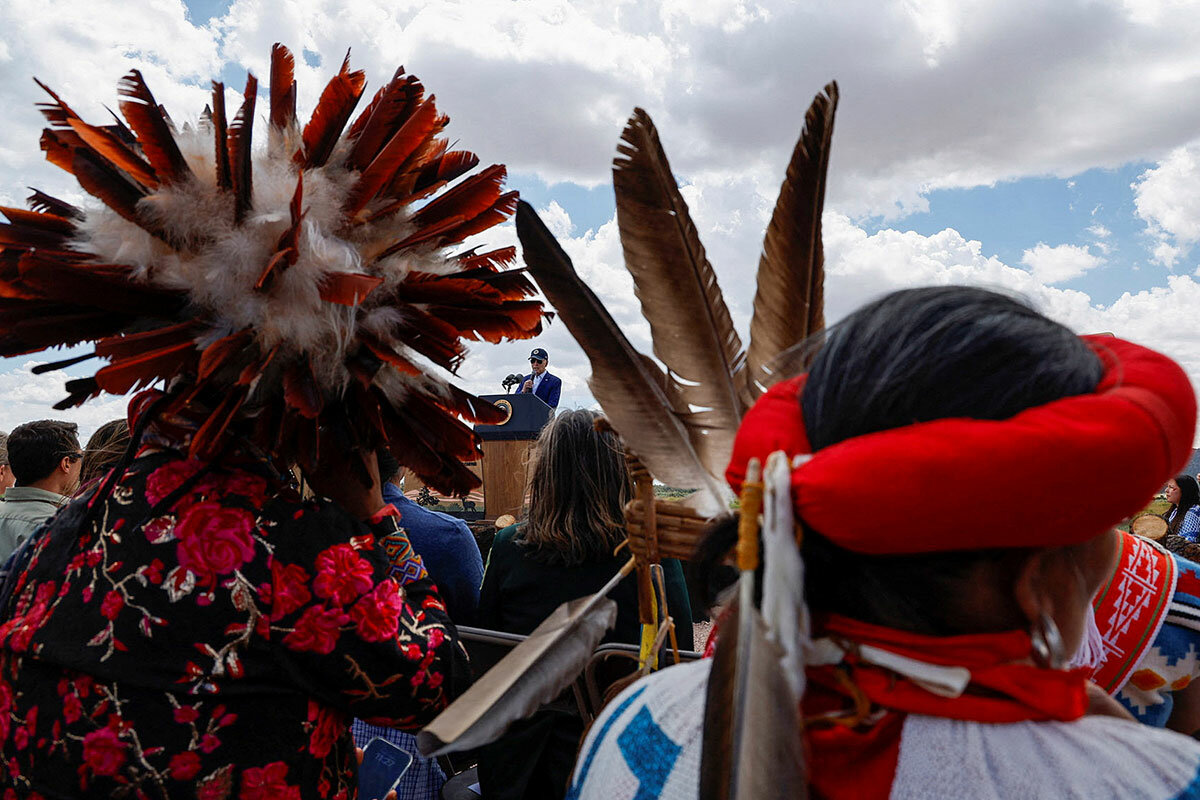Do recent indictments of Donald Trump reflect overdue legal accountability or unfair attacks by political rivals? The electorate is polarized, but some see ways to sift the difficult questions at play.
Monitor Daily Podcast
- Follow us:
- Apple Podcasts
- Spotify
- RSS Feed
- Download
 Ira Porter
Ira Porter
From an open mezzanine above, I watched my daughter gaze excitedly at her teacher 30 feet away from her, standing behind a trampoline and a tumbling mat. Other little girls, dressed in similar colorful leotards, ran toward their instructor, then bounced and flipped.
Then it was my baby girl’s turn. And in the middle of summer, far from school halls, I’m seeing the power of another kind of learning.
She sprinted with her arms at her side – fast as lightning – bounced, did a front flip with her hands extended, rolled over, and hurried to get up. Her teacher told her to lie down, point her toes up, and stick her hands above her head. Mission completed, my beautiful 7-year-old looked up at me and smiled.
In a packed gymnasium at a Delaware Boys & Girls Club, I watched my son sneak up behind a boy dribbling a basketball at the top of the key and snatch it away. I jumped to my feet as he scooped the ball up off the hardwood and hurried toward his team’s basket. My wife was shouting next to me. A defender caught up to my soon-to-be 9-year-old boy, which made him stop temporarily, spin with the ball in his hand, lose his defender, and dribble straight toward the basket. I screamed, “Lay it up!” from the bleachers. He tried but clunked it too hard off the backboard. In that same game, he missed another shot and snatched two rebounds.
I have never been so excited over a gymnastics performance or a basketball game that wasn’t undertaken by a professional before. This has been a summer of learning for my babies. They are learning new sports: tennis, basketball, and gymnastics. Most importantly, they are having fun and learning to have the confidence that comes along with competing.
During the year, when I drive them to school in the morning, I drill them on what confidence means: to believe in oneself. I pray that they continue to get the lesson.









